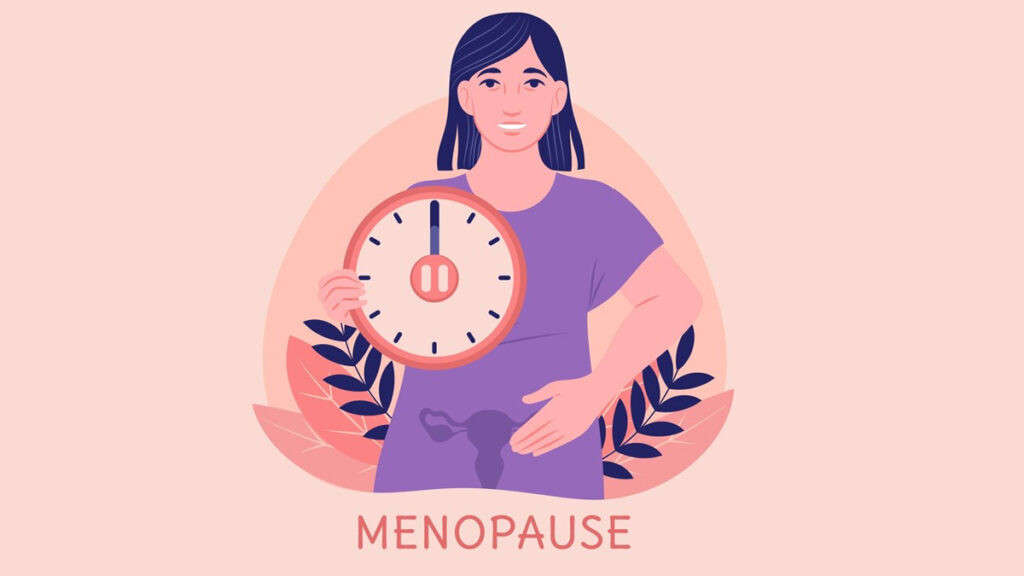
MANY people often attribute issues like yellowing of teeth, memory loss and wrinkles to ageing.
However, how many of the elderly population take proactive steps to address the changes?
A story is told of a 50-year-old woman who consistently experienced xerostomia (mouth dryness), the burning and tingling of the gums and the tongue.
One day on a random morning as she was brushing her teeth, she absentmindedly wiggled her tooth and froze because this had never happened to her before.
Her personal oral hygiene routine was excellent, she led a healthy lifestyle and interestingly she had never missed a dental check-up.
Nevertheless, the symptoms persisted, hence she decided to visit the dentist and ask questions that were racing in her mind.
After reviewing her symptoms, the dentist asked her if she had been accounting for menopause’s impact on her oral health.
It suddenly dawned at her that she had not.
- Health Talk: Menopause: Normal, but disturbing biological process
- Solving the million-dollar problem, unlocking million-dollar opportunity
- Oral health challenges in old adults
- Dealing with dry mouth syndrome (Xerostomia)
Keep Reading
Menopause is a phase which every woman around the age of 45-55 experiences.
It is a physiological process, humans can only predict when it might begin but no one ever knows the specific date, timing is determined by genetics, lifestyle or environmental factors.
During this period, many women are caught by surprise by the number of oral health symptoms that they experience.
Menopause is predicted by the decrease in the quantity of two hormones namely estrogen and progesterone.
Hormonal imbalances affect the whole body including the soft tissues of the mouth and the salivary glands due to the fact that they contain estrogen receptors which means that any hormonal variations can directly affect the mouth.
Oral symptoms are often observed during peri menopausal (years close to menopause period) and post-menopausal period (after).
These symptoms include gum disease, xerostomia (dry mouth), burning mouth syndrome, bone loss causing tooth mobility and hormonal GERD (Gastroesophageal reflux).
In addition to biological symptoms menopause has detrimental psychological effects, on anxiety leading to abnormal eating habits, mood, confidence.
Gum disease (Gingivitis, Periodontitis)
The periodontium is a complex structure that includes the gums, periodontal ligaments, the cementum and the bone, without the periodontium our teeth will fall out due to lack of support.
Despite it being a supportive structure, it also requires support from diet, the body as a system and this includes the hormones.
Sex hormones are responsible for its structure.
The estrogen receptors in periodontium are located in the bone part in cells called osteoblasts (which are responsible for formation of new bone.
As we grow, we constantly need bone regeneration for maintaining bone health and overall body function to allow bones to adapt to the daily mechanical demands.
Without this process bones become very weak and break causing falling out of teeth or tooth mobility, gum recession (your teeth looking longer than before).
Hence during menopause, it is important to take Vitamin D supplements, but most importantly hormonal therapy.
Xerostomia (Dry mouth)
Dry mouth is a common symptom during menopause due to the presence of the estrogen receptors in salivary glands.
Therefore, the salivary flow rates are dependent on estrogen status of a person.
As saliva acts as a defence mechanism for the prevention of caries and antimicrobial properties in the mouth, a decrease in this fluid can expose the mouth to infection and increase the risk of caries.
It is recommended to chew sugar free gum in mild conditions, to use artificial salivary sprays, hydrate more but in severe conditions you can go to a medical doctor and get a prescription for pilocarpine (a medication for mouth dryness).
Burning mouth syndrome
An abnormally burning or tingling sensation experienced on the soft tissues of the mouth without any present lesion as well as taste alteration (usually a metallic taste) is defined as burning mouth syndrome.
There are other oral health diseases that can present as this condition, but the only difference is that in this case the soft tissues look normal without any sign of damage or disease.
It is recommended to take B12 and iron supplements, use Aloe vera mouth rinses to sooth the pain and primrose oil to aid in anti-inflammatory effect, but most importantly visit the doctor for a checkup.
Hormonal GERD (Gastro-esophageal reflux)
A decrease in estrogen production could cause the weakening of the esophageal sphincter which can result in acid reflux especially during the night due to the sleeping position of the person.
The symptoms include a sour taste upon waking up, thick saliva or a hoarse voice.
This stomach acid can cause tooth erosion (wearing of tooth structure by acid) if the condition is not treated on time.
Tooth erosion can manifest in the form of thinning of the enamel, increased hypersensitivity and the presence of translucent edges on teeth.
For management of this conditions, it is recommended to sleep on an elevated pillow to keep the acid down, use alkaline rinses before going to bed (baking soda + water swish before bed) and use toothpaste with an ingredient, nano-hydroxyapatite or fluoride for remineralisation.
In conclusion, hormonal shifts rewrite the rules of oral health, it is important to pay attention to oral changes during perimenopausal and postmenopausal periods and visit the doctor.
Knowledge is power and with the right strategies you can be able to keep your smile strong, healthy and confident for decades.
Patience Matambo (BSc Dental Surgery) champions the notion of improved dental literacy in Zimbabwe and Africa at large as an endeavour towards the realisation of the one health objectives. She can be reached at patiencedental2024@gmail.com.










